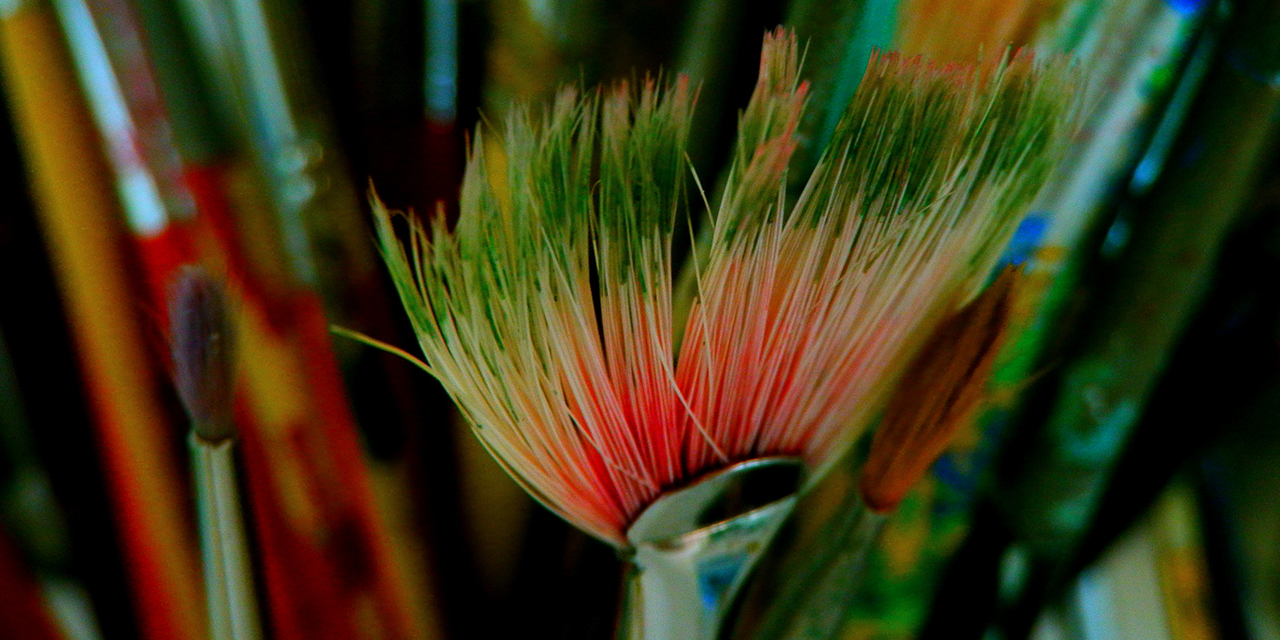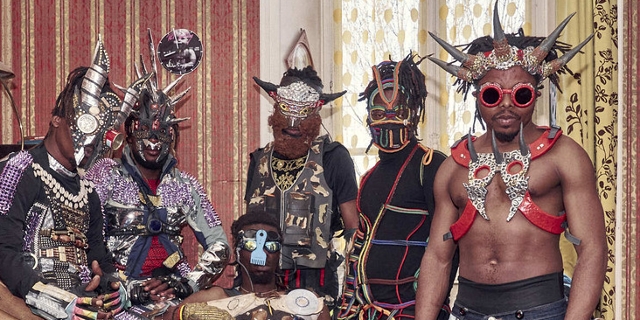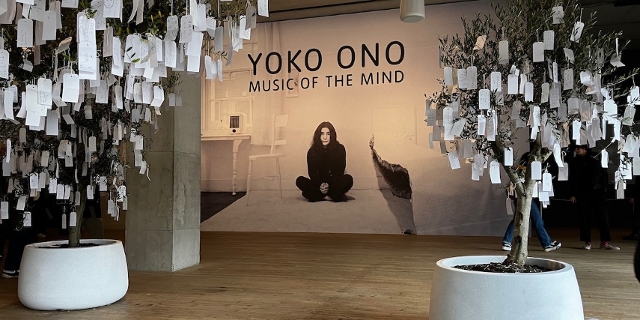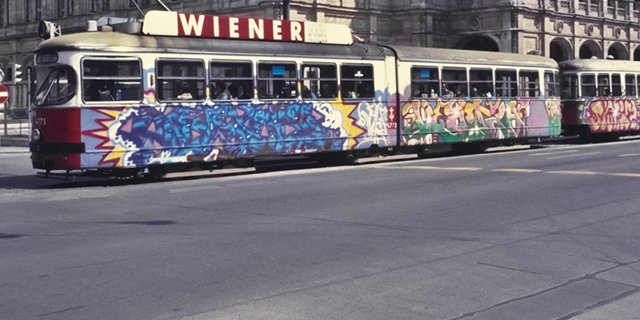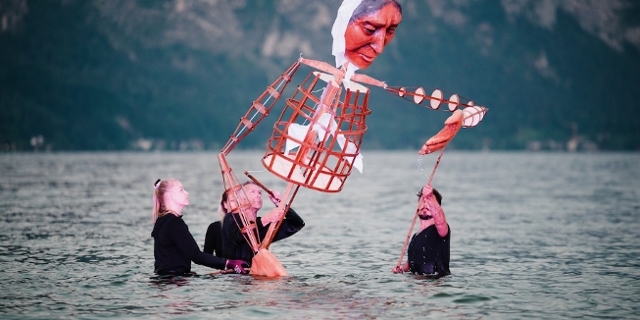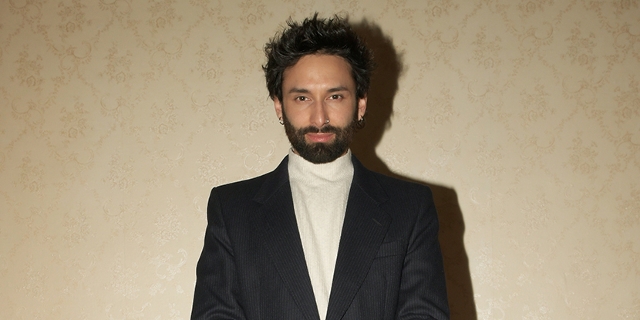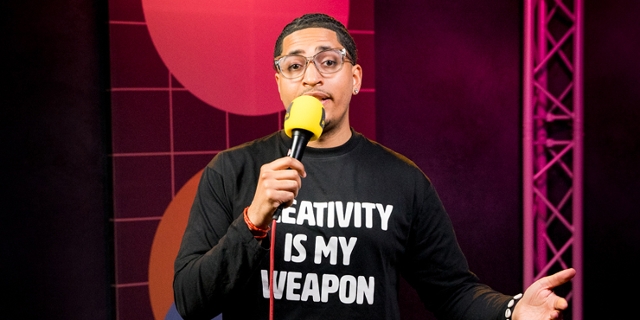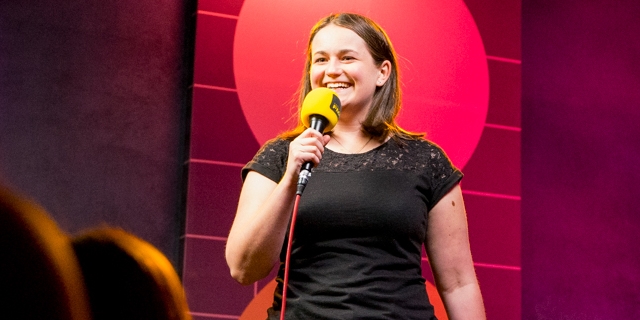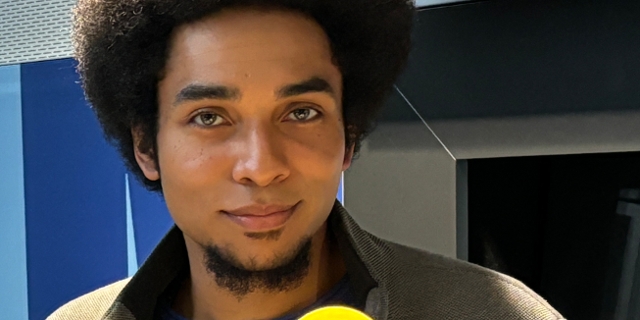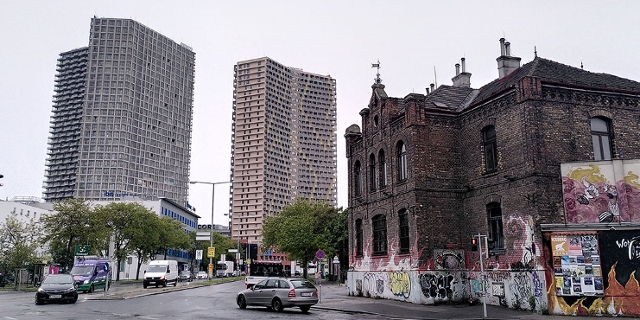The Healing Power of Art
Today’s Reality Check special is all about the healing power of art and its capability to bring people together. It’s about how literature, theatre, the visual arts and even dance have helped people cope with the aftermath of conflict and tragedy from the Middle East to Cambodia to the slums of Latin America. And it is about why art matters here too.
We must robustly defend art in this age of austerity and bloody-minded populism – a philistine race to the bottom that is being run at a dizzying pace across the globe. Who was surprised when the Trump administration proposed a national budget that included the elimination of the National Endowment for the Arts? The thin-skinned and narrow-minded have always felt threatened by art.
The argument is always superficially compelling: why ‘waste’ money on dancing and acting and painting pretty pictures when there aren’t enough hospital beds. It’s a false dichotomy. Of course you can have both. It would be better to ask why fund new roads when it is air pollution putting people in those hospital beds.
Reality Check Special: Every Saturday, 12-1
Or subsidizing outdated fossil fuel technology or building ever more missiles. It is not a choice between funding arts and funding wellbeing – the two do not contradict each other. A healthy society needs to breathe and think: that’s the role art plays.
Meet Anida Yoeu Ali, an artist who describes herself as global agitator. She a refugee and genocide survivor from Cambodia who now live in the US. She says her experience as a refugee is something that constantly accompanies, describing herself as “in a twin-state of belonging and not-belonging” and constantly being reminded of the horror and loss that led her family to flee.
Now established in the USA, she takes on provocative performances in public spaces, including a project challenging the deportation of Cambodian-Americans who have served time in US prisons who are returned to the South-East Asia country of origin although many have never been to Cambodia because they were born in refugee camps. Another video project has examined prejudices against Islam.
“A lot of my work seems to get under people’s skin,” says Anida. “Governments have issues with it. It churns up controversy.”
We need to hear those marginalised voices.
Let’s go back to the US National Endowment for the Arts. In recent months, the NEA had funded a dance performance by people in wheelchairs and dance classes for people who use mobility devices, workshops led by Muslim artists in California and a chorus in Minnesota that expressed the experiences of LGBTQ youth in group song. Populists almost by definition have little interest in marginalized groups, but for the health of our societies it is vital we hear these voices.
A Critical Mirror
Art gives us a voice, a voice that can be critical, as in the case of Anida Yoeu Ali, a voice that helped create empathy, a voice that can reach across ideological chasms. The arts are vital building blocks for the resilient, reflective, healthy societies we need to face today’s challenges. That’s true here in the West, but even more so in countries around the world that are recovery from war and trauma.
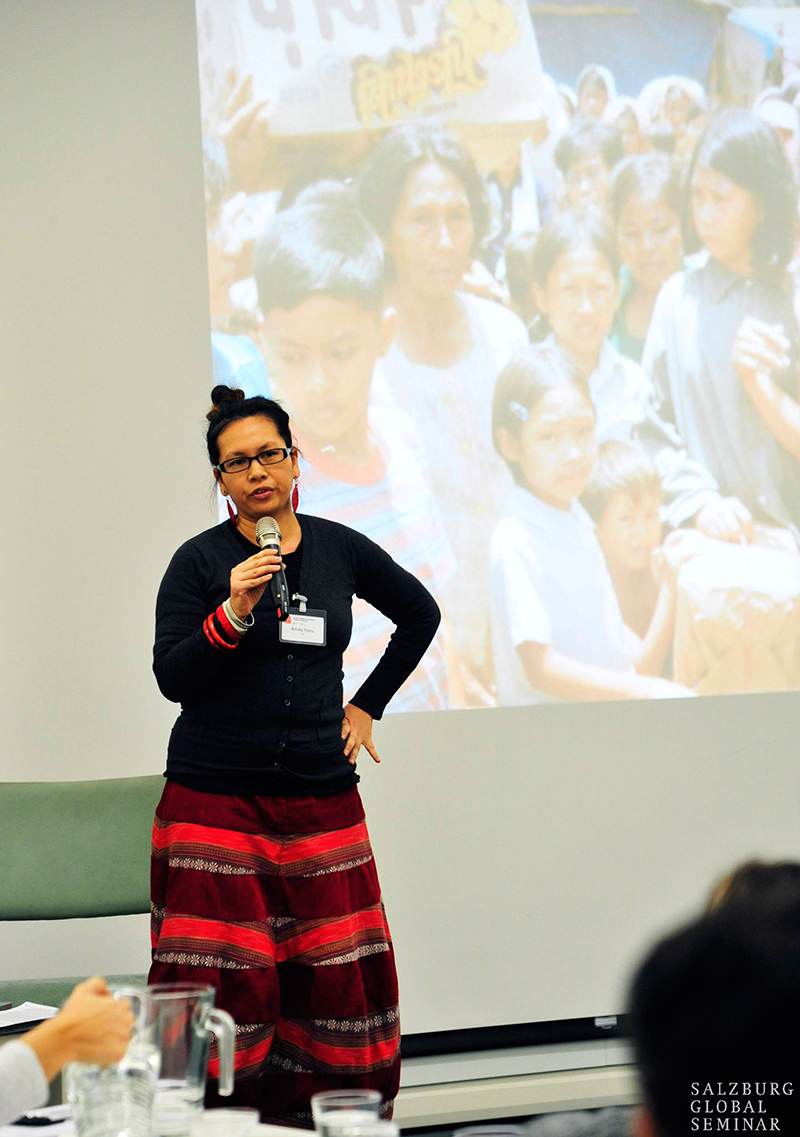
Salzburg Global Seminar
“I think art gives resilience,” says Lyne Sneige, the Lebanese born director of the Arts and Culture Program at the Middle East Institute in Washington. “Art has being doing this for a long period of time. People have been using it during conflict as a form of therapy for people who have experienced conflict. People have been using it to help people cope in difficult situations.”
The Book Of Life
There can be few more difficult situations that the aftermath of a genocide. Katese Odile Gakire is a playwright and actor director from Rwanda. In 2009 she launched The Book of Life, a project to try and help her country heal from the genocide in 1994. At its heart are letters to the dead, written by both survivors and perpetrators of the genocide.
“It allows people to say goodbye, to recreate that link that was broken between the survivors and the victims,” says Katese of her project. “And it allows the rehabilitation of the victims as human beings. It gives them back their reality.”
Restoring Individuality
Rwanda is full of moving memorials to the genocide, often piles of skulls and bones reminded us of the scale of that slaughter. Katese says The Book of Life gives back the “flesh, the blood and the skin to those skeletons. People are no longer numbers, they are individuals.
Nick Boraine is a South African actor and associate artistic director for Global Arts Corps, which works in post-conflict situations around the world. It brings together young actors who have been affected by a conflict to create a place of dialogue. He says the conflict doesn’t end with a cease-fire or a political agreement, the residue pain is expressed in poverty and in a sense of humiliation, alienation or division. He brings members of opposite sides of the conflicts together to create the theatre.
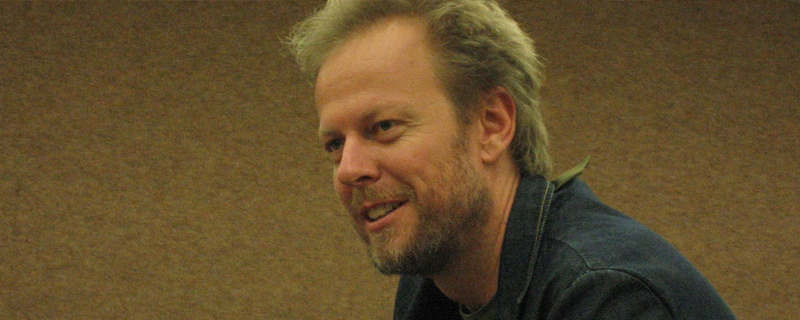
alchetron.com
“The only real rules are that it has got to take time. There has to be a real sizeable chunk of rehearsal time and space where things can be really talked about. We must have music; music is an essential part of this sort of communication as is humour.”
He says theatre is an excellent place to treat the scars of post-conflict communities.
Our guests on today’s show were participants at The Salzburg Global Seminar That’s platform for dialogue and discussion and way of using that global interaction to dream up a better, fairer world. We thank them.
“Theatre, unlike film, is live. There is nothing like an audience experiencing a live performance, especially when it comes to post-conflict, because it is real. There is flesh and bone in front of you.” Nick says the aim is not to find solutions but to find a way of “telling these incredibly complicated stories that exist between the facts.” The audience completes that by coming away with a more nuanced, empathetic understanding of the situation.
It seems to me that nuance and empathy are the weapons that can defeat populism. It seems to me that by giving voices to the marginalised who have much to say but lack platform to say it, is key to helping us understand our own societies. It seems that now more than ever we have to value art, promote art and fund art. It is not an indulgence, it is not a luxury, it is essential.
Publiziert am 08.04.2017







